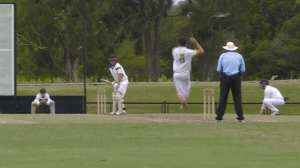
UPDATE: The Supreme Court of India is pressing the government to transition from the traditional method of execution by hanging to more humane alternatives, such as lethal injection. During a hearing on October 14, 2025, the Court criticized the Central government’s reluctance to modernize execution methods, highlighting a growing global consensus on the need for reform.
The apex court, led by Justices Vikram Nath and Sandeep Mehta, expressed serious concerns about the government’s “status-quoist” stance. “The problem is the government is not ready to evolve… it’s a very old procedure,” the Court noted, underscoring the urgency of the issue.
This plea for change originates from a public interest litigation filed in 2017 by senior advocate Rishi Malhotra. Malhotra argues that hanging is a cruel method, often resulting in prolonged suffering. He advocates for the adoption of lethal injection, which is utilized by the U.S. military, and emphasizes that death row convicts should have a choice between execution methods.
The Central Government responded, labeling the choice of execution methods as infeasible and asserting that hanging remains the safest and quickest option. They warned that alternative methods could lead to botched executions, potentially resulting in more barbaric outcomes. However, the Court’s strong stance suggests a growing pressure on the government to reconsider its approach.
The next hearing is scheduled for November 11, 2025, amid growing calls for reform. The Court referenced a May 2023 order that contemplated forming an expert committee to review execution methods, signaling a potential shift in policy.
Historical context reveals that the Law Commission of India, in its 187th Report from October 2003, urged the introduction of lethal injection as a more humane alternative to hanging. The report noted that hanging could inflict severe pain and suffering, labeling it as cruel and inhuman. It recommended amending Section 354(5) of the Code of Criminal Procedure to allow for lethal injection, and suggested that judges should have discretion in choosing execution methods.
The Commission’s findings resonate with international human rights standards, emphasizing the need for methods that are quick, certain, and respectful of the dignity of the condemned. The current practice of hanging can lead to asphyxiation or strangulation, resulting in agonizing deaths.
As the Supreme Court continues to press for modernization, the implications for death row inmates and the broader criminal justice system in India could be profound. This evolving situation highlights a critical moment for human rights in India, with the potential to reshape the landscape of capital punishment.
Stay tuned for further updates as this story develops, and the November hearing approaches. The implications of the Supreme Court’s push for change could redefine execution methods in India, aligning them with contemporary standards of human dignity and decency.






